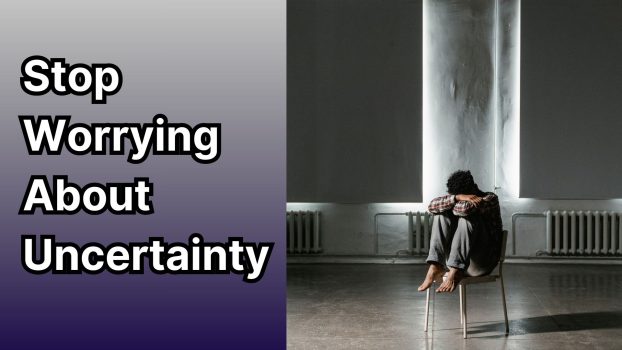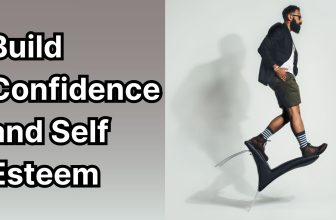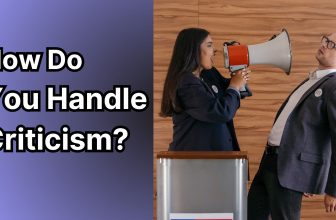If you’ve ever felt overwhelmed by worry or anxiety, unsure about the future or how to manage events spiraling out of control, you’re not alone. Many people experience a constant hum of apprehension, especially during times of confusion and upheaval.
Much like the unsettling yet darkly comedic world depicted in Stanley Kubrick’s film Dr. Strangelove or: How I Learned to Stop Worrying and Love the Bomb, where the looming threat of nuclear war meets absurdity, learning to stop worrying is both a vital skill and a transformative process. In my own journey, I found that embracing uncertainty, rather than fearing it, was the key to discovering peace. This realization mirrors how the film’s characters confront the dread of a bomb that could detonate at any moment, ultimately recognizing their true power lies in how they respond.
This article explores how I learned to stop worrying about uncertainty—not by ignoring risks but by changing my perspective — and how you can do the same.
Understanding the Nature of Uncertainty
The Inevitability of Uncertainty
Uncertainty is an inherent part of life—something no one can fully avoid or control. This constant presence of the unknown challenges our natural desire for predictability and safety. Just as the characters in Stanley Kubrick’s Dr. Strangelove grapple with the unpredictable threat of nuclear war, we too often confront situations where outcomes are ambiguous or beyond our influence. In reality, uncertainty can arise from countless sources: economic changes, personal relationships, or global events.
Acknowledging its inevitability allows us to stop resisting and instead develop ways to cope effectively with the unknown.
Psychological Impacts of Uncertainty
The psychological effects of living with uncertainty can be profound. Often, it triggers heightened anxiety as our brains activate stress responses, focusing intensely on potential threats.
This can lead to overthinking, rumination, and an urge to control every detail—similar to the anxious air force generals and officials in Dr. Strangelove, such as General Jack Ripper or General Buck Turgidson, who desperately try to manage an uncontrollable situation. The fear of what might happen causes emotional disturbances ranging from frustration and confusion to sadness and anger.
Excessive worry may impair decision-making and provoke avoidance behaviors, preventing growth or adaptation. Understanding these impacts is essential for stepping out of this cycle and learning to live more peacefully amid uncertainty.
Strategies to Embrace Uncertainty
Shifting Perspective
One of the most powerful ways to stop worrying about uncertainty is by shifting your perspective. Instead of viewing uncertainty as a threatening void, try seeing it as a series of opportunities to learn and grow—much like Stanley Kubrick’s use of satirical absurdity in Dr. Strangelove, which transforms the paralyzing fear of nuclear war into a catalyst for reflection and humor.
This mindset reflects the idea of treating life’s unknowns as experiments where failure isn’t the end, but rather useful data to adapt and improve. By embracing uncertainty as a teacher rather than an enemy, you can diminish anxiety and build resilience.
Building Resilience
Building resilience means strengthening your ability to cope with unexpected challenges and bounce back from setbacks. This concept is mirrored in characters from Dr. Strangelove, such as Major King Kong and Captain Lionel Mandrake, who navigate confusing and high-stakes situations.
Practical strategies to build resilience include focusing on what you can control — like your reactions and daily habits — and accepting what you cannot. Mindfulness practices, grounding yourself in the present, and setting realistic, manageable goals can help you navigate turbulent times without feeling overwhelmed.
Resilience doesn’t eliminate uncertainty, but it equips you to handle it more effectively.
Planning Without Over-Planning
While it’s natural to want to prepare for future scenarios, over-planning can amplify worry and hinder adaptability. Instead, consider planning with flexibility in mind: create adaptable frameworks that leave room for change without rigid control.
This approach resembles the chaotic “war room” scenes in the movie, where, despite the best military planning, unpredictability reigns. By preparing for multiple possibilities rather than an exact outcome, you maintain readiness while avoiding the trap of obsessing over unforeseeable details. Learning to hold plans lightly allows you to act decisively when necessary and adjust swiftly as situations evolve.
Maintaining Balance and Inner Peace
Regular Mental and Physical Health Practices
Maintaining balance amid uncertainty requires deliberate care for both your mind and body. Regular mental health practices like mindfulness meditation, journaling, or cognitive behavioral techniques can help keep worry in check by anchoring you in the present moment and reshaping unhelpful thought patterns.
Physical health practices such as consistent exercise, proper sleep, and nutrition play an equally important role by reducing stress hormone levels and boosting mood through endorphin release. Together, these habits build a foundation that protects you from being overwhelmed by anxiety, much as a steady hand helps navigate tumultuous situations like those humorously portrayed in Stanley Kubrick’s Dr. Strangelove. Making these practices part of your routine allows you to cultivate resilience and sustain inner peace during unpredictable times.
Staying Connected
Human connection is an important buffer against the anxiety caused by uncertainty. Staying connected with friends, family, or support groups provides emotional reassurance and a sense of belonging, which counters isolation and fear. Sharing your worries or listening to others’ experiences fosters mutual support and perspective.
Just as the characters in Dr. Strangelove depend on communication—even within the chaotic war room—to navigate crises, your social network can serve as your “war room” of support, providing steadiness when the unknown feels daunting. Scheduling regular check-ins or openly asking for help when needed strengthens these bonds and enhances your emotional availability.
Continuous Learning and Self-Reflection
Embracing uncertainty also means remaining open to continuous learning and self-reflection. Reflect on how you respond to discomfort and uncertainty, and identify strategies that work best for you.
This continuous process of self-awareness helps you adapt and refine your coping mechanisms over time. Like the collaboration between Stanley Kubrick and writer Terry Southern, who crafted a sharp critique of Cold War anxieties in Dr. Strangelove, your own reflective approach can transform worry into wisdom. By acknowledging your growth areas and successes, you foster a mindset that sees uncertainty not as a threat but as a dynamic part of life’s journey, cultivating both peace and strength.
Conclusion
Learning to stop worrying about uncertainty starts with recognizing that it is an unavoidable part of life. Instead of viewing it as a threat, consider reframing it as an opportunity for growth. By shifting your perspective, building resilience, and adopting flexible plans, you equip yourself with the tools to face the unknown with confidence.
Prioritizing your mental and physical health, staying connected with supportive individuals, and engaging in continuous self-reflection are essential practices that help reinforce your sense of inner peace.
Just like the timeless lessons from Stanley Kubrick’s Dr. Strangelove, embracing uncertainty doesn’t mean eliminating fear—it’s about mastering your response to it.
Take the first step today. Apply these strategies to cultivate a sense of calm and regain control over your life.
FAQ
How can I cultivate a mindset that helps me accept and manage uncertainty effectively?
To cultivate a mindset for managing uncertainty, focus on grounding yourself in daily routines and staying present in the moment. Incorporate practices like daily meditation and emotional check-ins to build self-awareness. Shift your perspective to see uncertainty as an opportunity, prioritize actions you can control, and practice self-compassion when dealing with fears and anxiety.
What practical steps did you take to reduce anxiety related to unpredictable situations in your life?
I reduced anxiety about unpredictability by concentrating on the short term and breaking tasks into manageable chunks. Practicing mindfulness helped me stay present, while limiting exposure to distressing news reduced overwhelm. Regular exercise released calming endorphins, and maintaining a healthy diet supported my overall well-being. Seeking support when needed, along with maintaining routines and practicing self-kindness, were key strategies.
How did learning to embrace uncertainty impact your decision-making and personal growth?
Learning to embrace uncertainty had a profound impact on my decision-making. It reduced fear, enhanced my emotional intelligence, and boosted creativity and adaptability. This shift allowed me to approach challenges with resilience and explore new opportunities with confidence.
On a personal level, it fostered growth by encouraging a positive mindset, inspiring continuous learning, and expanding my perspectives beyond my comfort zone.
What advice do you have for staying resilient when faced with ongoing unpredictable challenges?
To stay resilient during unpredictable challenges, focus on what you can control and break larger challenges into manageable steps. Build a support network of trusted individuals and practice mindfulness to stay grounded. Self-compassion and maintaining routines provide stability, while embracing flexibility and learning from setbacks nurture growth. Cultivate confidence and connection to adapt and emerge stronger through adversity.







